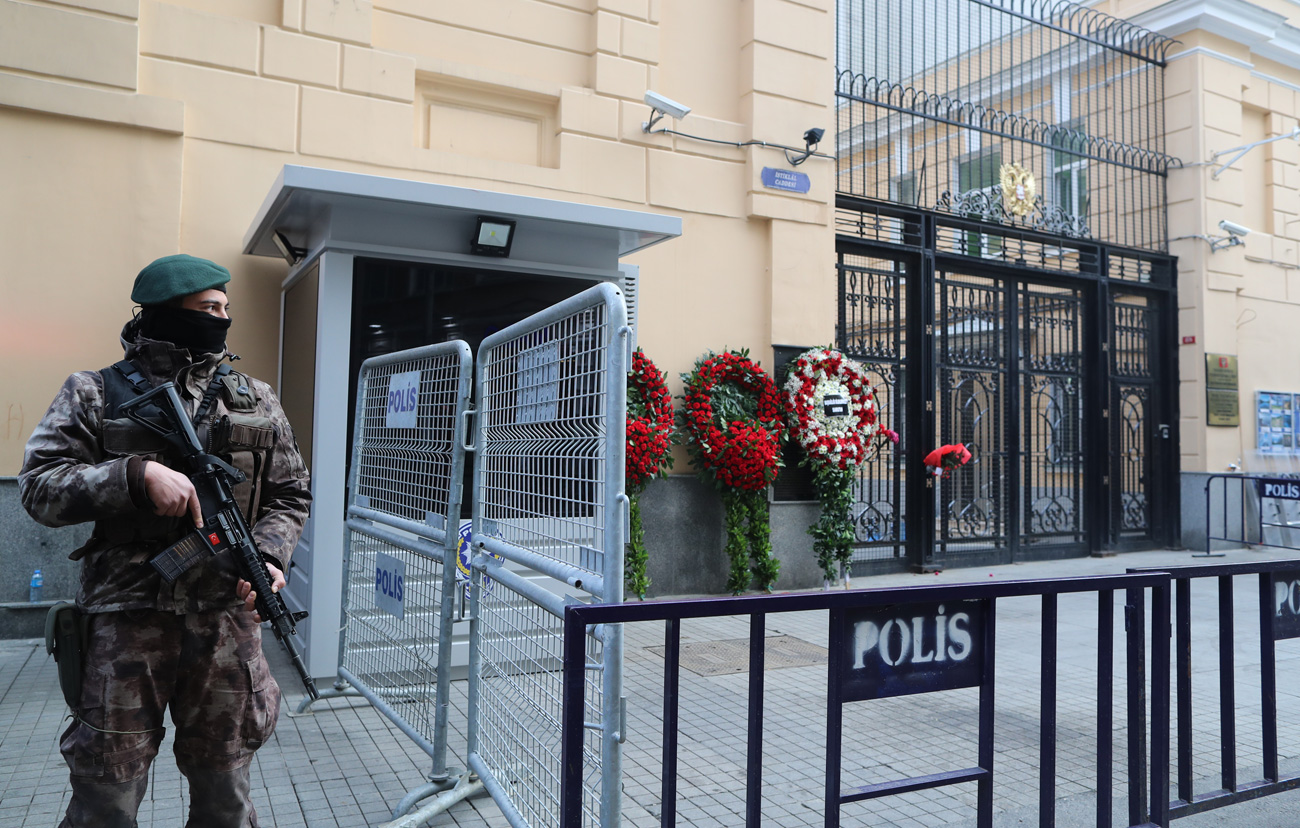
Special forces guard the Russian Consulate in Istanbul, Turkey on Dec. 20, a day after Russia's Ambassador to Turkey, Andrey Karlov, was shot at an art exhibition in the Turkish capital of Ankara.
EPAFor more than 10 years the Turkish authorities have not allowed the Zaslon special squad (the seventh division of the Center of Private Security at the Foreign Intelligence Service) to protect Russian diplomats in the country, despite the fact that its main objective is to guarantee security for embassy workers.
Zaslon fighters work in many countries throughout the world. These fighters are well prepared and armed and not only provide physical protection but also have operative working skills. Only after the public assassination of Russian Ambassador to Turkey Andrei Karlov on Dec. 19 did Turkey immediately restart discussions on the possibility of having the Zaslon fighters protect Russian diplomats. An employee of the squad spoke to a Rosbalt correspondent on condition of anonymity.
Q: If the Zaslon fighters had been protecting Andrei Karlov, would the tragedy have been avoided?
A: In this situation we can say what would have happened had our guys been present in Turkey. It is absolutely sure that there wouldn't have been any people behind the diplomat as he was speaking. Next to him there would have been two armed men in plain clothes who would have been observing the people in the hall and would have covered the diplomat in the event of an unexpected situation. Other Zaslon fighters in plain clothes would have also been present in the hall.
Karlov had to move about the city in an armored vehicle, in which there would have also been Zaslon fighters, and not only with guns but also with automatic weapons. Unfortunately, Karlov did not have such protection. And this is not our fault.
Q: Why are there no Zaslon representatives in Turkey, especially if we consider the recent events?
A: Threats against embassy workers in Turkey began to appear more than 10 years ago. At that time many combatants who had fought in the North Caucasus were in Turkey resting and undergoing cure. They were potentially very dangerous. Then representatives of various terrorist and extremist organizations who sympathized with them joined them. More than 10 years ago we raised the issue of our diplomats in Turkey needing to be protected by Zaslon fighters. But for this we needed permission from Turkey and all this time we did not receive it.
Q: It turns out that Karlov had no protection at all?
A: Yes, it does. Sometimes the diplomat's driver carries out the function of a guard. But in 90 percent of the cases these are people who just happen to be there, without any preparation and are therefore unable to protect the diplomat from serious danger.
Q: What were the reasons for Turkey's unwillingness to have Russian diplomats be protected by professionals?
A: The Zaslon fighters arrive in a country with a large arsenal, which includes various types of weapons, as well as technology: from armored vehicles to various equipment. When they are on duty the fighters move about the city, also with their weapons. Turkey was against having armed people from Russia in the country. However, the team of fighters would have been small and its function would have been exclusively to provide security for the diplomats. Usually, these problems do not arise in countries where threats for embassy workers exist.
Q: Do Zaslon fighters work in many countries today?
A: I can't say that the list of countries is vast, but there are enough. For example, the fighters serve in Iraq, Syria, Afghanistan, Libya, Yemen and other countries.
Q: Has the Turkish position on this issue changed after Karlov's assassination?
A: As far as I know, talks on having the Zaslon fighters come to Turkey have recommenced immediately. We expect that in the near future the order will be given for them to go to Turkey.
First published in Russian by Rosbalt
All rights reserved by Rossiyskaya Gazeta.
Subscribe
to our newsletter!
Get the week's best stories straight to your inbox